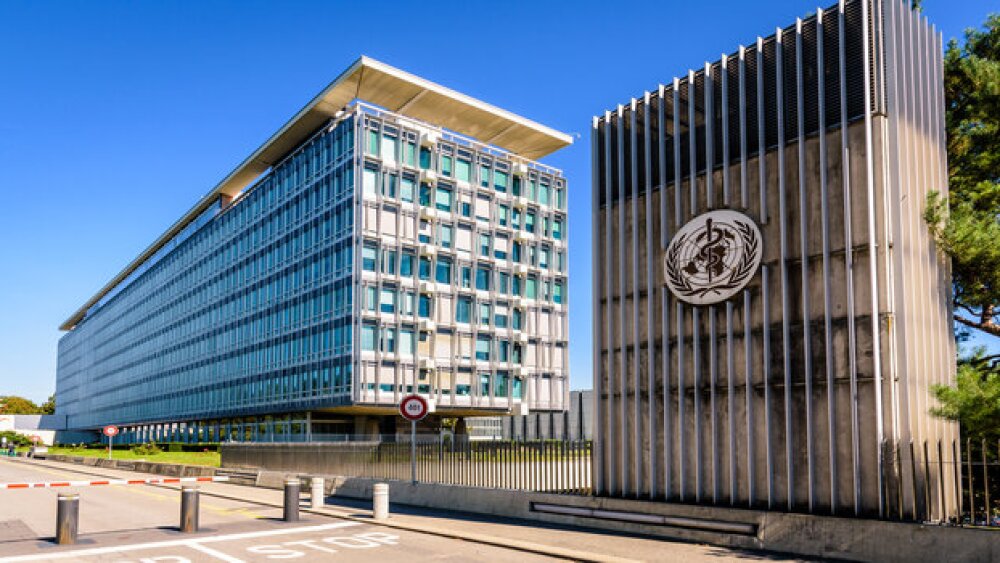Health Canada has issued a Notice of Compliance (NOC) approving BEYFORTUS™ (nirsevimab) for the prevention of respiratory syncytial virus (RSV) lower respiratory tract disease (LRTD) in newborns and infants during their first RSV season, and children up to 24 months of age who remain vulnerable to severe RSV disease through their second RSV season.
TORONTO, April 24, 2023 /CNW/ - Health Canada has issued a Notice of Compliance (NOC) approving BEYFORTUS™ (nirsevimab) for the prevention of respiratory syncytial virus (RSV) lower respiratory tract disease (LRTD) in newborns and infants during their first RSV season, and children up to 24 months of age who remain vulnerable to severe RSV disease through their second RSV season.1 RSV is a common and highly contagious seasonal respiratory virus infecting almost all children by two years of age.2 RSV usually causes mild symptoms but can cause severe illness, including bronchiolitis and pneumonia that may lead to hospitalization or even death.1 The virus is most common during the winter, but it may begin earlier or last longer in certain parts of the country.1 RSV is a leading cause of infant hospitalizations (approximately 79%),3 including infants born at term with no underlying health conditions.4,5,6,7,8 Dr. Steven Moss, MD, FRCPC, DipABPed The approval was based upon a BEYFORTUS™ clinical development program spanning three pivotal late-stage clinical trials, including results from the Phase 3 MELODY trial recently published in the New England Journal of Medicine.9 Jason Lee Sanofi is committed to making BEYFORTUS™ available to newborns and infants for the upcoming 2023/2024 RSV season. About RSV
RSV is the most common cause of LRTD, including bronchiolitis and pneumonia, in infants. In Canada, RSV is a leading cause of hospitalizations in infants, with children under the age of 2 being 14 times more likely to be hospitalized due to RSV than influenza.4,5 All infants are potentially at risk of developing a severe RSV infection.6,7,8 Most hospitalizations for RSV occur in healthy infants born at term.3,10 RSV also places a burden on the health system, with most hospitalized infants needing supplemental oxygen and some requiring ICU admission.11,12 About BEYFORTUS™ (nirsevimab)
BEYFORTUS™ is approved by Health Canada for the prevention of respiratory syncytial virus (RSV) lower respiratory tract disease in newborns and infants during their first RSV season, and children up to 24 months of age who remain vulnerable to severe RSV disease through their second RSV season.1 BEYFORTUS™, an immunizing agent and a long-acting antibody designed for all infants for protection against LRTD from birth through their first RSV season with a single dose, is developed jointly by Sanofi and AstraZeneca. BEYFORTUS™ has been developed to offer newborns and infants direct RSV protection via an antibody to help prevent LRTD caused by RSV. Monoclonal antibodies do not require the activation of the immune system to help offer timely, rapid, and direct protection against the disease. In March 2017, Sanofi and AstraZeneca entered into an agreement to develop and commercialize BEYFORTUS™. Under the terms of the agreement, AstraZeneca leads development and manufacturing activities, and Sanofi leads commercialization activities. About Sanofi
We are an innovative global healthcare company, driven by one purpose: we chase the miracles of science to improve people's lives. Our team, across some 100 countries, is dedicated to transforming the practice of medicine by working to turn the impossible into the possible. We provide potentially life-changing treatment options and life-saving vaccine protection to millions of people globally, while putting sustainability and social responsibility at the center of our ambitions. In Canada, Sanofi employs approximately 2,000 people and in 2022, we invested more than $145 million in R&D in Canada, creating jobs, business, and opportunity throughout the country. REFERENCES
SOURCE Sanofi Canada |




